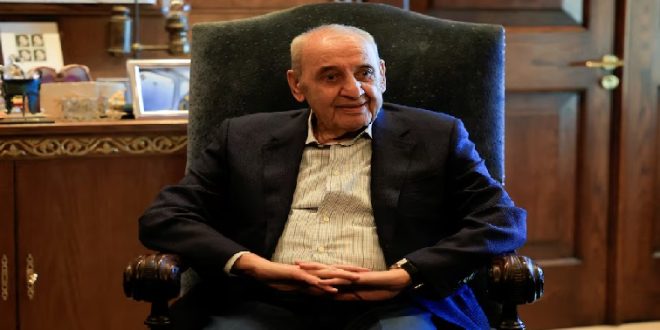01-02-2025
BEIRUT: Washington is pressuring top Lebanese officials not to allow Hezbollah or its allies to nominate the country’s next Finance Minister (FM), five people with knowledge of the matter said, in an attempt to limit the Iran-backed group’s sway over the state.
 The unusually direct US intervention in Lebanon’s sectarian politics appears aimed at capitalizing on shifts in the power balance in Lebanon and the wider Middle East, with Iran-backed Hezbollah badly pummeled from last year’s war with Israel and its Syrian ally Bashar al-Assad ousted from power.
The unusually direct US intervention in Lebanon’s sectarian politics appears aimed at capitalizing on shifts in the power balance in Lebanon and the wider Middle East, with Iran-backed Hezbollah badly pummeled from last year’s war with Israel and its Syrian ally Bashar al-Assad ousted from power.
Like all of Lebanon’s main factions, the armed group Hezbollah has long named ministers to government, in coordination with its Shi’ite ally the Amal Movement, which has picked all of Lebanon’s finance ministers since 2014 but US officials are keen to see that influence diminished as Lebanon’s prime minister-designate Nawaf Salam forms a new cabinet, the five sources said, speaking on condition of anonymity as they were not authorized to speak to the press.
They said US officials have passed on messages to Salam and to Lebanese President Joseph Aoun who enjoyed US support as army commander and was elected president in early January that Hezbollah should not be included in the next cabinet.
Three of the sources said Lebanese American businessman Massad Boulos, who was appointed by US President Donald Trump as an adviser on Middle Eastern affairs, was one of the people conveying that message to Lebanon.
Although US Republican Congressmen have publicly urged Trump to keep Hezbollah and its allies out of government, it has not previously been reported that Boulos and other US officials were delivering this message directly to Lebanon.
There was no immediate response from the White House or State Department to media questions on whether the US has weighed in on Hezbollah’s role in the cabinet or Boulos’s role.
 Boulos told Lebanon’s Al Jadeed TV he looked forward to the government being formed without “those whose experience is with the previous system”, so as to restore international confidence.
Boulos told Lebanon’s Al Jadeed TV he looked forward to the government being formed without “those whose experience is with the previous system”, so as to restore international confidence.
One of the people familiar with the matter, who is close to Hezbollah, said there was “significant American pressure on Salam and Aoun to clip the wings of Hezbollah and its allies.”
Three other people with direct knowledge of the issue told media that allowing Hezbollah or Amal to nominate the finance minister would hurt Lebanon’s chances of accessing foreign funds to help meet a huge reconstruction bill from last year’s war, in which Israeli air strikes flattened swathes of the country.
Much of the damage is in majority Shi’ite areas where Hezbollah draws support. Hezbollah has urged Arab and international support for Lebanon to rebuild but Lebanese and regional sources say that international assistance is dependent on political developments.
One of those milestones was Aoun’s election as president.
A source close to the Saudi royal court said French, Saudi, and U.S. envoys had told Parliament Speaker Nabih Berri, the leader of Amal and a close Hezbollah ally that international financial assistance including from Saudi Arabia hinged on Aoun’s election. The next step, the sources said, was government formation.
When asked about Hezbollah’s inclusion in the new government, France’s foreign ministry spokesman Christophe Lemoine said the government needed to be strong and capable of bringing together all of Lebanon in all its diversity. (Int’l Monitoring Desk)
 Pressmediaofindia
Pressmediaofindia




